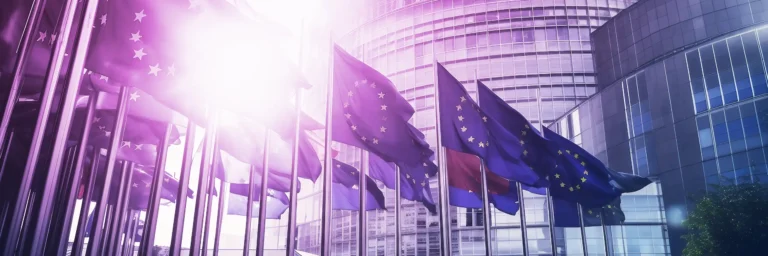Clarius.LegalNewsroom




- Dr. Andreas Pagiela
- 14.06.24
- Reading time: 5 minutes
The problem of non-compliance
Anti-corruption standards vary around the world. A Group-wide compliance management system and effective handling of whistleblowers is therefore essential.
German companies are happy to deny practices such as bribery. Dennoch geraten sie immer wieder in die Schlagzeilen, da Führungskräfte oder einzelne Mitarbeiter fahrlässig oder bewusst gegen entsprechende Vorgaben verstoßen.
At the beginning of 2024, the software company SAP had to accept a fine of 222 million dollars so that the US judiciary would stop investigating bribery, as reported by Deutschlandfunk on 10 January 2024. The company allegedly falsified its financial statements from 2013 to 2022 to make bribes to government officials in seven countries appear to be legitimate business expenses.
High fines for corruption
The commodities trading group Trafigura was also indicted in the USA, as the Austrian daily newspaper “Der Standard” reported at the end of March. The company has pleaded guilty to corruption charges and will pay around 127 million dollars. The case concerned the bribery of Brazilian officials by former Trafigura employees. In Brazil, bribes were paid to employees of the oil company Petrobras between 2003 and 2014, resulting in profits of more than 61 million dollars. For example, bribes of up to 20 cents per barrel were paid in the oil trade between Petrobras and Trafigura.
The allegations of bribery at Siemens in 2006, in which the Executive Board was also involved, are also an unpleasant memory. The same applies to the incidents at VW surrounding the “emissions scandal” that became known in 2015. This also resulted in fines and compensation payments totalling billions, as well as immense damage to the company’s image, which continues to this day.
Difficult situation for internationally active companies
The rules are clear, as are the sanctions. Nevertheless, companies are violating compliance. How can this be explained?
A study by Transparency International aims to clarify this question. The survey covered 539 companies that generate part of their turnover in countries where the level of corruption is higher than in Western countries. According to the survey, every second export company is confronted with demands for bribes or gifts, and 63 per cent of these companies comply with these demands. According to this study, one in three companies works with bribery abroad.
But how should we act in the “no corruption, no contract” constellation? Our Head of Compliance & Data Protection and Certified Compliance Professional (CCP) Dr Arnt Glienke has a clear opinion on this: “Companies must position themselves clearly and make it clear at every level of cooperation that ‘zero tolerance’ is the principle. The more convincingly and unambiguously they communicate and live this, the more likely business partners are to accept such a principle.”
What can those responsible do to enforce compliance guidelines even in countries with a low level of anti-corruption awareness? Attorney at Law Dr Glienke also has a clear opinion here: “Compliance must be a matter for the boss. This means two things above all: the company management must communicate the compliance standards personally and anchor their importance in the company’s DNA. At the same time, there must be an open corporate culture in which adherence to compliance regulations is honoured – and not the attraction of contracts at any price.”
Compliance management systems in companies
Due to the complexity of international business relationships, corporate groups are particularly challenged to monitor legal and internal company regulations. Example Frankfurt Airport: The operating company Fraport has summarised its internal company guidelines with regard to combating corruption in its Fraport Code of Conduct. A Group-wide compliance management system is in place to ensure that these requirements are adhered to. The system monitors whether the Group companies behave in accordance with the rules, for example when dealing with gifts and invitations, and carries out compliance checks on business partners. Indications of compliance violations are also taken into account. The local management of the companies is responsible for the compliance management system. From there, the threads come together in the central “Legal Affairs and Compliance” department with the Chief Compliance Officer. He is responsible for the content, organisation, maintenance and further development of the Compliance Management System of Fraport AG.
Whistleblower systems and training as effective tools
As with many companies, the most important instrument for preventing and detecting compliance violations at the airport is the legally prescribed whistleblower system. Employees, business partners and customers can submit anonymous online reports of irregularities in all Group companies. Employees at the Frankfurt site can also contact an internal counsellor. In this area, too, there are now tried-and-tested and legally compliant products that companies can fall back on.
Ein weiterer, wichtiger Baustein, um Antikorruption durchzusetzen sind schließlich Compliance-Schulungsprogramme. Constantly updated and adapted to new challenges, they ensure that compliance is actually practised at all levels of the company. After all, compliance is as dynamic as business life itself – and requires dialogue with all stakeholders in order to be effective and adapt to current developments.
Compliance expert Dr Glienke recommends the following: “Personal liability for company management has been repeatedly extended in recent years, most recently by the EU Supply Chain Directive in spring 2024. At the same time, the risks in the area of compliance are particularly difficult to overlook and assess. However, this complexity is only impenetrable at first glance: tried and tested tools such as compliance management systems and whistleblower systems ensure that the wheel does not have to be reinvented. Complemented by the communication of an open corporate culture, risks become visible in this way even before they become problems. The greatest risk is therefore non-compliance.”
Fraud and embezzlement
Incidents of fraud and embezzlement indicate serious breaches of compliance involving financial misconduct, unethical practices and breaches of trust. Such actions require thorough investigations, enforcement measures and penalties to deter future incidents.
- These incidents can have a significant impact on a company’s financial stability and reputation in the industry. If fraud goes undetected, it can escalate quickly and cause widespread damage that can take years to rectify.
- Implementing fraud prevention strategies and improving compliance controls are crucial steps to protect against fraudulent behaviour.
- By fostering a culture of ethics and integrity, organisations can create a strong deterrent to fraudulent activity and promote a transparent and trustworthy business environment.
How can effective compliance measures be implemented in your company?
We are happy to support you in designing a compliance management system and whistleblower system as well as the corresponding training. With tried-and-tested legal tech tools and individual advice, you can rely on the practical expertise of our lawyers.


